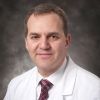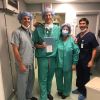Understanding the Risk Factors for Heart Disease in the Elderly
- Heart Disease in the Elderly
- Common Risk Factors for Heart Disease in Seniors
- Preventive Measures for Heart Disease
- Real-Life Cases of Heart Disease in the Elderly
- Maintaining Heart Health in the Elderly
Heart Disease in the Elderly
Heart disease remains one of the leading causes of death among the elderly. As individuals age, their risk for cardiovascular issues increases due to a combination of biological and lifestyle factors. Understanding these risks is crucial for elderly individuals, their caregivers, and healthcare providers in order to prevent and manage heart disease effectively.
The aging process itself brings about changes in the heart and blood vessels, making the elderly more vulnerable to conditions such as coronary artery disease, heart failure, and arrhythmias. This article delves into the primary risk factors contributing to heart disease in seniors and offers practical tips on prevention and management.

Common Risk Factors for Heart Disease in Seniors
Several risk factors contribute to heart disease in the elderly. Many of these are linked to lifestyle choices, but others are due to the natural aging process. By understanding these factors, seniors can take proactive steps toward maintaining their heart health.
- High Blood Pressure: Hypertension is one of the leading risk factors for heart disease. As individuals age, the arteries naturally stiffen, raising blood pressure. Uncontrolled high blood pressure can strain the heart and lead to serious complications.
- Chronic Conditions: Diabetes and high cholesterol are prevalent among the elderly, both of which can increase the risk of developing heart disease. Diabetes, in particular, can damage blood vessels over time, leading to cardiovascular issues.
- Physical Inactivity: Sedentary lifestyles are common in older adults, leading to weight gain and poor cardiovascular health. Lack of exercise can contribute to the development of high blood pressure, obesity, and weakened heart function.
- Unhealthy Diet: Diets high in salt, unhealthy fats, and processed foods contribute to obesity, high cholesterol, and high blood pressure, all of which increase the risk of heart disease.
- Smoking and Alcohol Use: Smoking is a major risk factor for heart disease, and alcohol can also impact heart health, especially when consumed in excess. Smoking leads to the narrowing of blood vessels, while excessive alcohol use can contribute to heart failure and arrhythmias.
Preventive Measures for Heart Disease
Fortunately, there are numerous ways the elderly can reduce their risk of heart disease. Prevention is key, and many of the contributing risk factors can be managed through lifestyle changes, medication, and regular check-ups.
- Regular Exercise: Engaging in moderate physical activity such as walking, swimming, or cycling can help lower blood pressure, improve cholesterol levels, and promote overall heart health.
- Healthy Diet: A balanced diet rich in fruits, vegetables, whole grains, lean proteins, and healthy fats can improve heart health and reduce the risk of conditions such as high cholesterol and high blood pressure.
- Medication: For those with chronic conditions like hypertension, diabetes, or high cholesterol, medication is often necessary to manage these health issues and prevent complications.
- Regular Health Check-ups: Seniors should have their blood pressure, cholesterol, and glucose levels regularly monitored to catch any abnormalities early and address them before they cause serious heart problems.
- Quit Smoking and Limit Alcohol: Quitting smoking and reducing alcohol intake can significantly lower the risk of heart disease, improving overall cardiovascular health.
Real-Life Cases of Heart Disease in the Elderly
Understanding the real-life implications of heart disease in the elderly can provide valuable insight into how risk factors manifest and how early intervention can improve outcomes. Take the case of 78-year-old John, who had been living with uncontrolled high blood pressure for years. After a routine check-up, his doctor discovered he had developed coronary artery disease. By starting a treatment plan that included medication, dietary changes, and regular exercise, John was able to significantly reduce his risk of a heart attack and improve his quality of life.
Another case involves Mary, a 68-year-old diabetic who had struggled with obesity for most of her life. By working with a nutritionist and adopting a healthier lifestyle, including weight management and a more balanced diet, she was able to prevent further complications from heart disease, despite her diabetes. These real-life stories highlight the importance of early detection, intervention, and maintaining a healthy lifestyle as we age.
Capital Health Medical Center – Hopewell
capital health medical center hopewell
1 Capital Way, Pennington, NJ 08534, USA

Maintaining Heart Health in the Elderly
As we age, the need for heart disease prevention becomes even more critical. Understanding the risk factors for heart disease in the elderly is an essential first step in maintaining heart health. By following a heart-healthy lifestyle and regularly monitoring risk factors, seniors can reduce their likelihood of experiencing major cardiovascular events and enjoy a longer, healthier life.
For those who want to learn more about heart disease prevention in the elderly, there are numerous resources available, including consultations with healthcare providers, community health programs, and online health guides. Now is the time to take control of your heart health and start making those positive changes.





















Deborah Heart and Lung Center
deborah heart and lung center
200 Trenton Rd, Browns Mills, NJ 08015, USA